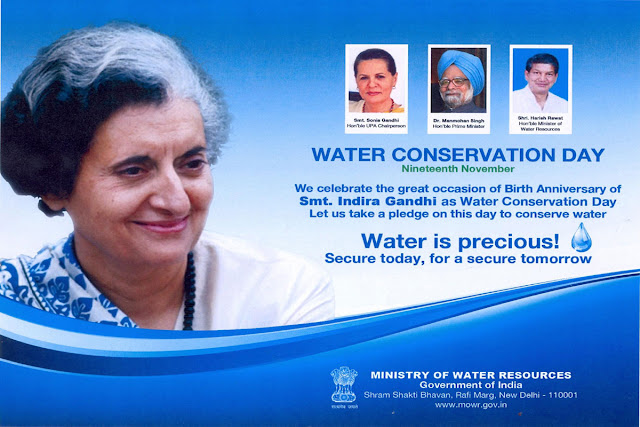
Water Conservation Day By Dr Arvind Kumar The recent decision of Union Ministry of Water Resources to observe 19 November, the birth anniversary of late Prime Minister Indira Gandhi, as Water Conservation Day to create awareness about the need to conserve water is a laudable move. The urgency for water conservation in Indian context assumes immense significance in view of the fast depletion of groundwater resources, pollution of surface water resources and rapid pace of melting of Himalayan glaciers. Water conservation is the most cost-effective and environmentally sound way to reduce our demand for water. Using less water also puts less pressure on our sewage treatment facilities, and uses less energy for water heating. Saving water also saves energy. Water conservation is an important tool for reducing water demand, and limiting water use should be an everyday practice for people and businesses. In many instances, water is wasted by old habits, like leaving the water r...
.jpg)

